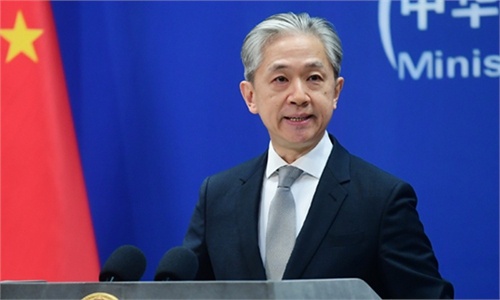National security authorities refute speculations that China’s Counter-Espionage Law poses data security risks

Cyber security. Photo: IC
China's Ministry of State Security issued a release on Thursday refuting claims that China's Counter-Espionage Law will pose data security risks for enterprises and individuals. The ministry has refuted speculations concerning the revised Counter-Espionage Law, for a fourth consecutive day.
Such speculations include the generalization of national security impacts overseas companies, leading to rising risks for foreigners in China.
Based on China's consistent position, the Counter-Espionage Law targets a very small number of illegal and criminal acts such as "cyber espionage," and does not apply to lawful data activities of foreign enterprises and individuals, let alone the so-called forced collection of data of foreign enterprises and individuals in China, the ministry said.
Regulations prescribed in the law on accessing and retrieving data are a detailed elaboration of existing laws, but not new authorizations, the ministry said. The Data Security Law, which was enacted in 2021, stipulates that national security organs can "access and retrieve data as required by law to safeguard national security or investigate crimes."
The revised Counter-Espionage Law further clarifies the premise of law enforcement, approval process and limits for accessing and retrieving data. It regulates that national security agencies should meet three requirements before accessing and retrieving data, which are for the purpose of carrying out counter-espionage work, with the approval of the head of a national security agency at certain level and should be within the scope of counter-espionage work, the ministry stressed.
China attaches equal importance to promoting data development and utilization and ensuring data security, and protects the data security of foreign-invested enterprises and individuals equally in accordance with the law, said the ministry.
The value of China's digital economy reached 45.5 trillion yuan ($6.3 trillion) in 2021, accounting for 39.8 percent of the country's GDP, according to a report released by the Chinese Academy of Cyberspace Studies, reported the Xinhua News Agency.
On November 1, 2021, China filed a formal application to join the Digital Economy Partnership Agreement, to strengthen cooperation with other countries in the field of digital economy.
The US has abused domestic laws and advanced technology and has become a "secret stealing empire," "eavesdropping empire" and a "hacker empire," the ministry noted.
In contrast to China's focus on protecting the important data collected and generated within its own territory, the US has long used its domestic legal authorization and strong technical capabilities to monitor its own people everywhere, monitor people around the world, steal data, and seriously undermine other countries' sovereignty and citizens' information security, the ministry said.
Recently, Chinese national security organs disclosed that the US intelligence agencies have frequently targeted extensive cyber-attacks and theft of secrets against China, creating serious risks and dangers to China's network and data security, the ministry noted.
Global Times


